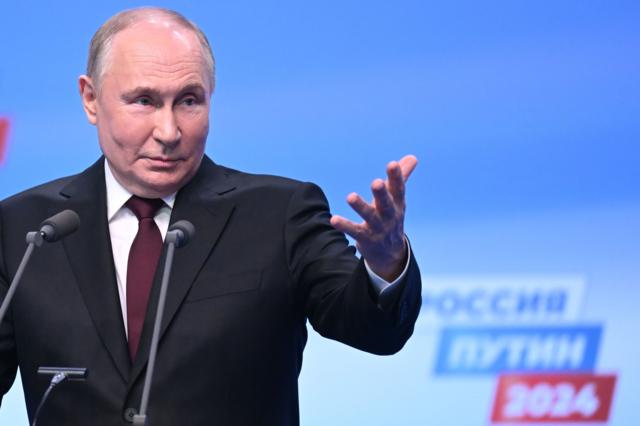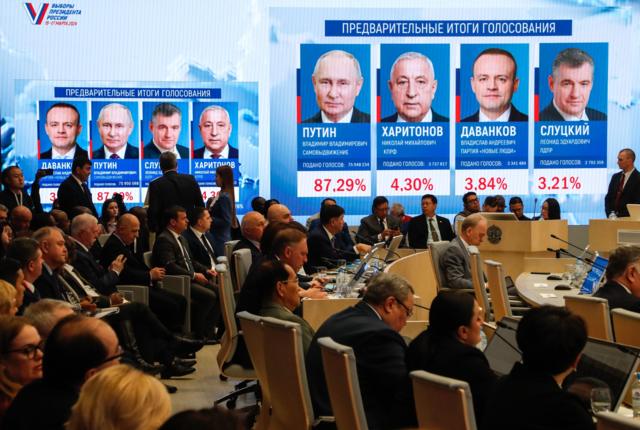
image source, EPA
Putin won 87% of the vote in the Russian elections.
As forecasts indicated, Vladimir Putin won the election by a landslide. This seemed the most logical thing to happen in Russia, where the Kremlin tightly controls the political system, including elections, and there is no need to predict the results with a glass ball.
But what will Vladimir Putin do with the 87 percent he received? What will his fifth term look like?
Putin’s fifth term may be no different from the previous term. There is no need for anyone to expect a “spell” that can suddenly turn a hawk into a dove with a magic wand. Putin is likely to continue on his current path of conflict abroad and repression from within.
Looking ahead, this may mean a continuation of the war in Ukraine – and the confrontation with the West – as well as an ideological campaign on the home front, as Putin continues his efforts to transform Russia into an increasingly militaristic society.
As for Russian civil society, it is under severe pressure. This may intensify.
Putin’s 87 percent is astronomical, although it will not convince Western leaders that it is a true reflection of Putin’s current level of popularity.
British Foreign Secretary David Cameron commented regarding the presidential elections in Russia, saying: “This is not what a free and fair election looks like.”
But internally, this ratio allows the Kremlin to say that the entire nation is united around Vladimir Putin, and that the Russian president has the full support of his people.
It is crucial that Putin now claims that he has a popular mandate for his war in Ukraine and the direction in which he is taking Russia.
Although Vladimir Putin claimed a landslide victory in the elections, he did not face any credible opposition.
The 87 percent voter turnout also sends a clear message to Russia’s political elite: “See, there’s still only one man in charge here, and that’s not going to change anytime soon.”

image source, AFP
Overall voter turnout in Russia’s presidential election, including online voting, reached an all-time high of 77 percent and is the highest in the country since 1991, according to the Central Election Commission.
This is important for Vladimir Putin, less than a year after the brief but dramatic uprising by Wagner’s mercenary group – which, led by Yevgeny Prigozhin, posed a direct challenge to Putin’s authority.
In the end, it was the Kremlin leader who came out on top. Two months after the rebellion, Prigozhin died, killed in a plane crash.
Another thing about the 87 percent is that it comes as a huge confidence boost. When you become president, and you are told that you won by a landslide again, it makes you feel more powerful, more invincible.
At Putin’s press conference about his victory on Sunday night, that confidence was evident. This was the confidence of a leader who has been in power for a quarter of a century and is set to become Russia’s longest-serving leader since Catherine the Great, and it is the confidence of a leader who built a political system that gave him an 87 percent rating. of votes and a fifth presidential term.
Putin spoke confidently about Russia’s progress in the war in Ukraine, saying the initiative was “completely” with his country, and predicting that post-election Russia would become stronger.
Critics point out that the issue of a leader’s political confidence – especially too much confidence – can be dangerous, especially in light of the absence of checks and balances in the country’s political system, of which there are few in Russia these days.
ظهرت في الأصل على www.bbc.com

